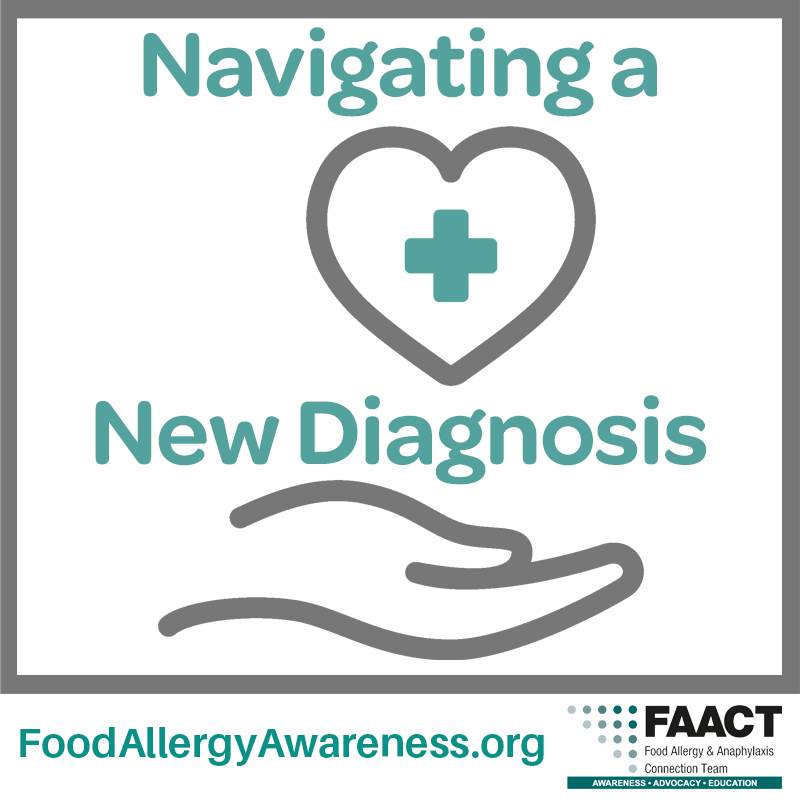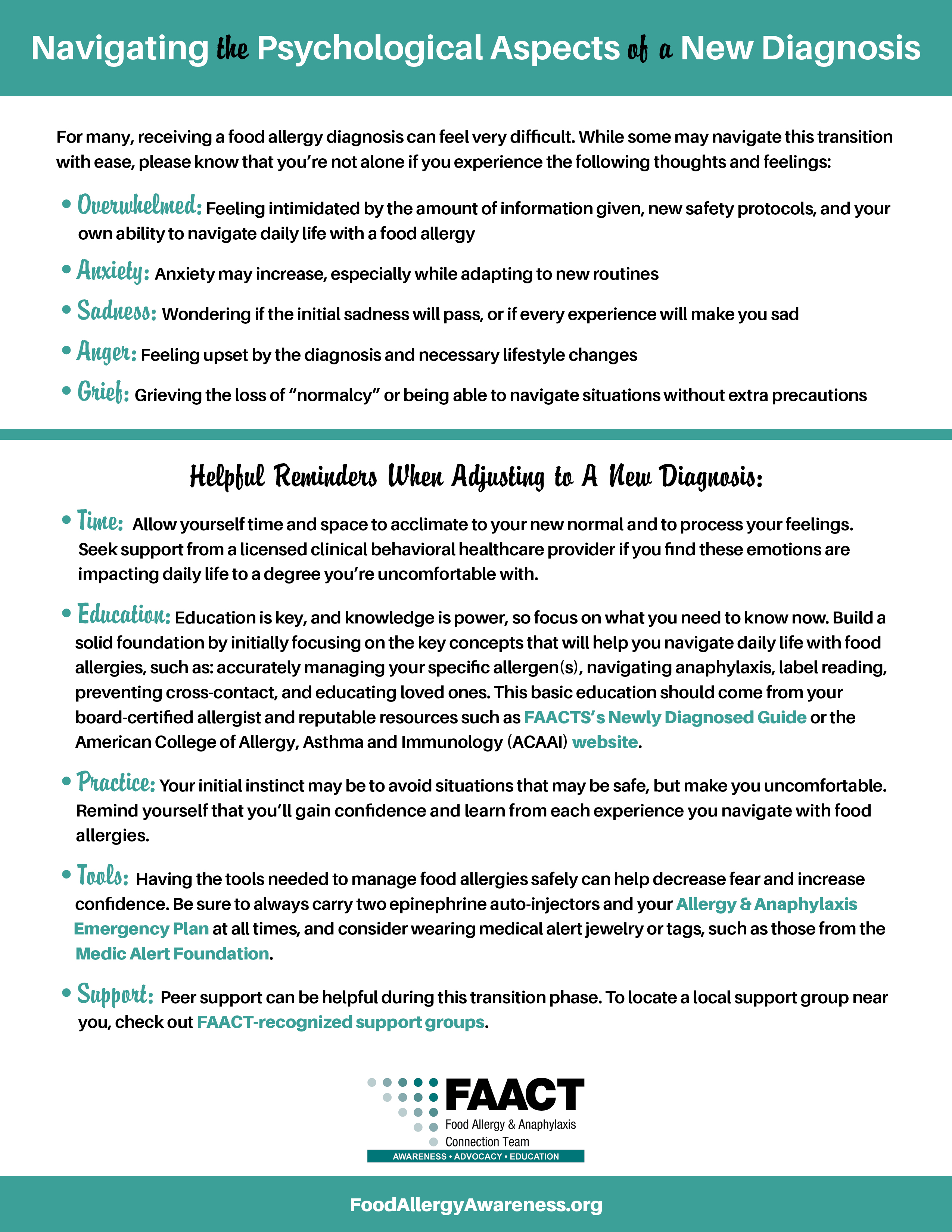Behavioral Health
Navigating A New Diagnosis
Back to Category View
Navigating the Psychological Aspects of a New Diagnosis
For many, receiving a food allergy diagnosis can feel very difficult. While some may navigate this transition with ease, please know that you’re not alone if you experience the following thoughts and feelings:
• Overwhelmed: Feeling intimidated by the amount of information given, new safety protocols, and your own ability to navigate daily life with a food allergy
• Anxiety: Anxiety may increase, especially while adapting to new routines
• Sadness: Wondering if the initial sadness will pass, or if every experience will make you sad
• Anger: Feeling upset by the diagnosis and necessary lifestyle changes
• Grief: Grieving the loss of “normalcy” or being able to navigate situations without extra precautions
Helpful Reminders When Adjusting to A New Diagnosis:
• Time: Allow yourself time and space to acclimate to your new normal and to process your feelings. Seek support from a licensed clinical behavioral healthcare provider if you find these emotions are impacting daily life to a degree you’re uncomfortable with.
• Education: Education is key, and knowledge is power, so focus on what you need to know now. Build a solid foundation by initially focusing on the key concepts that will help you navigate daily life with food allergies, such as: accurately managing your specific allergen(s), navigating anaphylaxis, label reading, preventing cross-contact, and educating loved ones. This basic education should come from your board-certified allergist and reputable resources such as FAACTS’s Newly Diagnosed Guide or the American College of Allergy, Asthma and Immunology (ACAAI) website.
• Practice: Your initial instinct may be to avoid situations that may be safe, but make you uncomfortable. Remind yourself that you’ll gain confidence and learn from each experience you navigate with food allergies.
• Tools: Having the tools needed to manage food allergies safely can help decrease fear and increase confidence. Be sure to always carry two epinephrine auto-injectors and your Allergy & Anaphylaxis Emergency Plan at all times, and consider wearing medical alert jewelry or tags, such as those from the Medic Alert Foundation.
• Support: Peer support can be helpful during this transition phase. To locate a local support group near you, check out FAACT-recognized support groups.
Download FAACT's Navigating the Psychological Aspects of a New Diagnosis handout.
